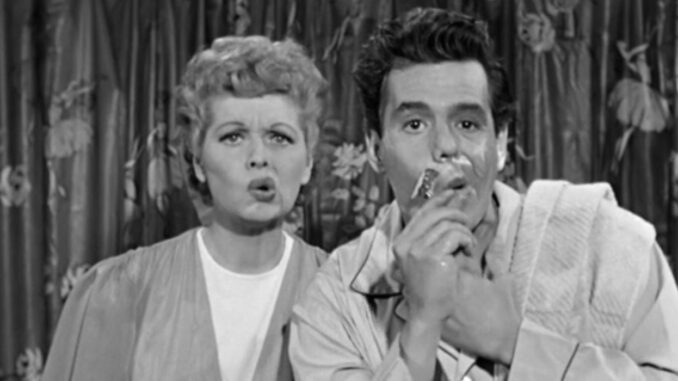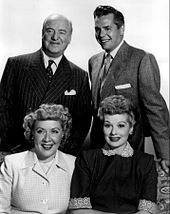
How ‘I Love Lucy’ Revolutionized TV Through Casting
Lucille Ball’s iconic sitcom I Love Lucy wasn’t just another TV show—it was a cultural phenomenon that forever altered the entertainment industry. But did you know its groundbreaking success started with a controversial casting decision? Let’s dive into how this beloved show reshaped television as we know it.
Why the Casting of Desi Arnaz Was Revolutionary
Lucille Ball and her husband, Desi Arnaz, were already a power couple in Hollywood. However, the idea of casting Desi as her on-screen husband wasn’t met with open arms. In the 1950s, mixed marriages, even fictional ones, were considered taboo on television. Arnaz, a Cuban-American actor and musician, faced significant pushback from network executives who doubted his appeal to American audiences.
CBS’s Reluctance to Embrace Diversity
CBS initially resisted the idea of Arnaz playing Ricky Ricardo. Executives believed audiences wouldn’t accept an interracial couple, even though Ball and Arnaz were married in real life. The network suggested casting a more “conventional” actor, but Ball stood her ground.
Lucille Ball’s Fight for Authenticity
Ball wasn’t just a comedic genius; she was a trailblazer. She refused to compromise, insisting that her real-life husband play her on-screen partner. Her argument? Audiences would connect more with the show’s authenticity if the chemistry was genuine.
Proving the Doubters Wrong
To convince CBS, Ball and Arnaz took their act on the road. They created a live vaudeville-style performance that showcased their undeniable chemistry and comedic timing. Audiences loved it, and CBS couldn’t ignore the overwhelming positive reception.
The Birth of Ricky Ricardo
Desi Arnaz’s character, Ricky Ricardo, wasn’t just a husband—he was a reflection of the American Dream. As a Cuban bandleader, Ricky brought a unique cultural perspective to the show, breaking stereotypes and paving the way for greater diversity in television.
Setting a New Standard for Representation
Before I Love Lucy, diverse representation on TV was virtually nonexistent. The show’s success proved that audiences were ready to embrace stories that reflected the real world, even if they challenged societal norms.

How ‘I Love Lucy’ Redefined Comedy
The casting of Arnaz wasn’t just about representation; it also redefined the sitcom genre. The chemistry between Ball and Arnaz created a dynamic that was both relatable and hilarious. Their comedic timing and natural banter set a new standard for on-screen couples.
The Impact of Real-Life Chemistry
Ball and Arnaz’s real-life relationship brought an authenticity to their performances that couldn’t be faked. Their genuine affection and occasional spats made Lucy and Ricky relatable to millions of viewers.
Overcoming Cultural Barriers
Arnaz’s Cuban heritage wasn’t hidden—it was celebrated. The show incorporated elements of Cuban culture, from music to language, exposing audiences to a world they might not have otherwise experienced.
Why Sponsors Initially Balked
It wasn’t just CBS that needed convincing. Sponsors were hesitant to back a show featuring a mixed-race couple. However, Ball and Arnaz’s undeniable star power eventually won them over.
The Show’s Record-Breaking Success
When I Love Lucy premiered in 1951, it became an instant hit. The show consistently topped ratings and won numerous awards, proving that audiences were ready for something different.
The Legacy of ‘I Love Lucy’
The success of I Love Lucy opened doors for other groundbreaking shows. It proved that diversity and authenticity could lead to both critical and commercial success, setting the stage for future TV milestones.
How ‘I Love Lucy’ Influences TV Today
From sitcoms to dramas, the lessons of I Love Lucy continue to resonate. The show’s willingness to take risks and challenge norms remains a blueprint for modern television.
Breaking the Mold: Lessons from Lucy and Ricky
The casting of Desi Arnaz wasn’t just a decision—it was a statement. It showed that television could be more than entertainment; it could be a force for change.
Conclusion
I Love Lucy didn’t just entertain—it revolutionized. By insisting on casting Desi Arnaz, Lucille Ball broke barriers and redefined what television could be. Their story isn’t just about a sitcom; it’s about courage, love, and the power of representation.
FAQs
1. Why was the casting of Desi Arnaz controversial?
Desi Arnaz’s Cuban heritage made network executives hesitant, fearing audiences wouldn’t accept a mixed-race couple on TV.
2. How did Lucille Ball convince CBS to cast Arnaz?
Ball and Arnaz performed a live vaudeville act that demonstrated their chemistry and comedic talent, winning over CBS executives.
3. What impact did I Love Lucy have on television?
The show set new standards for representation, diversity, and authenticity, influencing countless shows that followed.
4. Was Desi Arnaz’s character based on his real life?
Yes, Ricky Ricardo’s Cuban heritage and career as a bandleader mirrored Arnaz’s own background.
5. How is I Love Lucy remembered today?
The show remains a timeless classic, celebrated for its groundbreaking approach to comedy and representation.